Annual Report 2017
Annual Report 2017
We demand that public institutions be held accountable, and with this report we aim to lead by way of example. Learn in detail about what we have achieved over the past year, what worked and what didn’t.
5 years of opening up public institutions
In 2017 we celebrated 5 years of fighting against opacity in Spain’s public affairs.
This is our fourth Annual Report, an exercise we undertake each year with enthusiasm, candor and a critical eye to maintain the trust that so many people place in us, with more joining them by the day. You can also browse our reports from 2016, 2015 and 2014.
5 years of journalism aimed at uncovering bad practices in public administration; advocacy to introduce previously untouched topics into the political agenda and social debate; and collaborating with and training authorities, organizations and citizens to ensure that complex information on public policy and major decisions is, finally, made public.
A pioneering strategy, even outside of Spain, which we are committed to following in 2018. And an anniversary which we celebrated in September, surrounded by donors, supporters and friends.
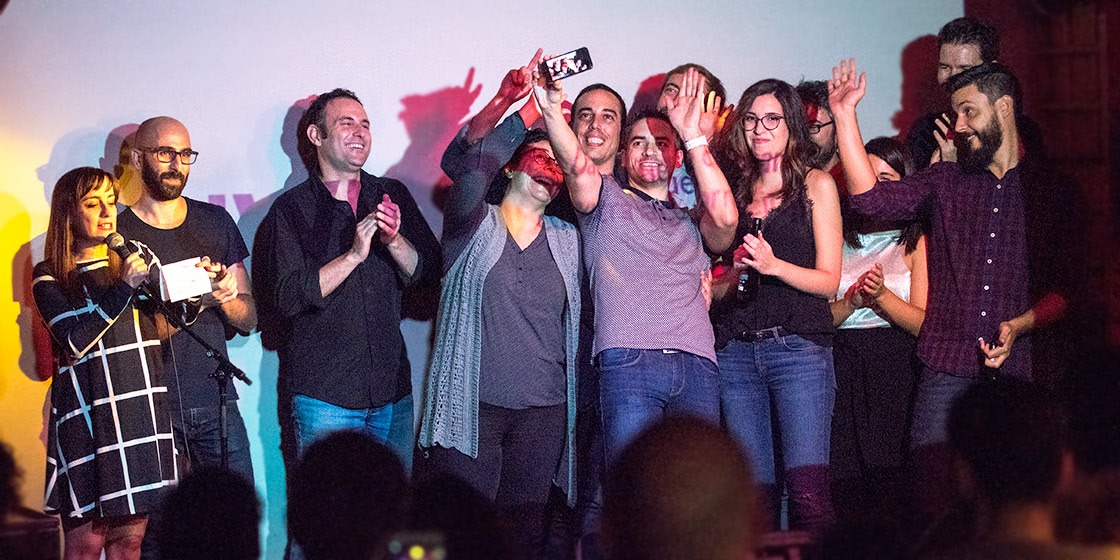
Civio’s fifth anniversary | Fernando Sánchez
Closer to you
One of our achievements this year was the qualitative step we took in the way we present our content and campaigns to you, the public. And in many ways, it was down to you.
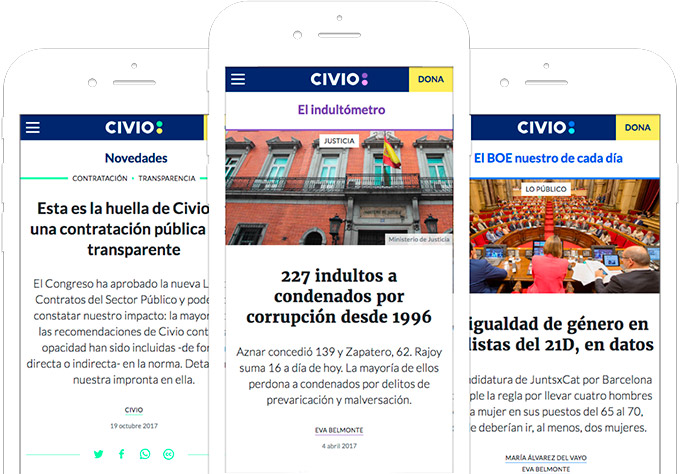
In May 2017, 90% of 500 people surveyed stated a high preference for being able to access Civio’s content via a single website, instead of different ones for each project, as has been the case until now. With this in mind, in September we collated over 1000 articles, which had been spread over various different sites, each with a different design, on civio.es – a new single access platform. Now we are able to better reflect who we are and who we want to be, and you’ll find it easier to browse our materials and gain a global view of what we do. This is a radical transformation for us, one completed internally and based on your feedback. We also have an English version where you can find a selection of our best stories in translation.
Objective in the 2017 Action Plan:
More journalism
We have continued to exhaustively investigate public affairs and the government, harnessing facts and figures, to shed light on blind spots in the system. We have upheld our commitment to information based on highly specialized knowledge, on an exhaustive analysis of data and on open methodologies. Thus, we offer exclusive information which is often not available to other media, we reject journalism which is not supported by primary sources, and reveal, in a way that you yourself can verify, the use of lies in the sphere of public administration.
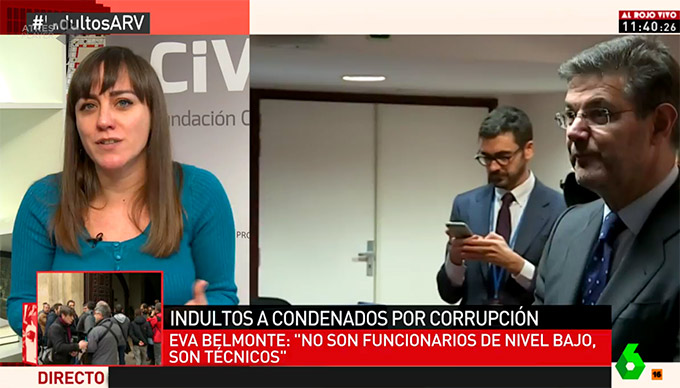
In-depth investigations are our reader’s preferred format, and credibility our most valued attribute according to our survey, Consequently, many of our investigations have been subject to parliamentary questions and have informed public debate, and increasing numbers of organizations are turning to them on a daily basis to demand social and legislative change.
This commitment translates to:
-
Journalism that monitors the government, based on highly specialized knowledge, to provide hitherto unpublished data and exclusive information on bad practices in public administration, such as pardons for those convicted of corruption, the hand-picked government advisers, inflated Defense budgets, everything that goes unsaid about the relationship between the pharmaceutical industry, healthcare professionals and public authorities, subsidies to political parties for election results or the statistics –also inflated– provided by the Transparency Portal.
-
Collaborative and transnational journalism through which we’ve shed light on the price of vaccines around the world; the increase in super bacteria; the price of new drugs for hepatitis C; or how the violence perpetrated by Boko Haram, poverty and corruption are the main reasons behind the low immunization rates in Nigeria.
-
Public service journalism that has already helped over 6,000 readers to check for themselves whether they are eligible for the social rate for vulnerable consumers (all despite the lack of specific information on this matter); check how the Transparency Portal catalogs its requests for information; or control the implementation of gender equality in electoral rolls.
In figures
- 165 articles published in 2017.
- 1.26 million unique readers.
- 6 major news outlets collaborating on international investigations: EuroNews, Correct!v, El Mundo, La Sexta, EuroScientist and MO* Magazine.
- Over 50 re-publications in the Spanish media. Principally: Público (23 times), La Marea (19), eldiario.es (6) and El Confidencial (4).
- Our data has been quoted in over 260 articles in local, regional, national and international media.
Objective in the 2017 Action Plan:
Maintain and update exiting projects
More advocacy
The social and cultural changes we seek cannot take place by themselves, hence we exert considerable effort to ensure you can access key information regarding public administration. And we do so by harnessing exhaustive knowledge of the rules and requesting very specific reforms, which target the fields we seek to improve both in their detail and in general. That’s why we lobby so much. But where is this directed?
Towards more transparent public procurement
Our most significant achievement of 2017, and one of the most important of our 5 years in business, was ensuring that from now on, public procurement will be more transparent and corrupt practices will be more difficult to pull off. Following 2 years of hard work, in particular during the amendments period, we can now state loud and clear, as well as demonstrate, that we have left a deep imprint on the new Law on Public Procurement, already in force. We will be continuing to monitor this to ensure these improvements become reality.
Against restrictions on the Right to Access Information
In our pursuit to uncover who accompanies senior officials on official flights, we landed in the Supreme Court. There, we are defending the right of us all to obtain information that dates to before the new Transparency Law came into force. A court ruling is aiming to limit this and we simply cannot allow that to happen. In the course of this lawsuit, we have taken our first steps towards acquiring the tools of strategic litigation which will strengthen our lobbying and advocacy power. We have also continued to demand that this law finally undergoes regulatory development. With over 150 requests for information each year, we are one of the most active players in the exercising of this right, allowing us to better push to effect change. And thanks to this on-going effort, we have been named runner-up in the Prize for Transparency, Integrity and the Fight Against corruption awarded by the General Council of Spanish Advocates and TI-Spain.
Towards transparency, at last, from lobbies
In May, the Popular Party’s delegation at the Spanish Congress presented a proposal for regulatory reform of the House’s regulation of interest groups, something we’ve been demanding for 5 years now. Here at Civio, we consider their proposal to be insufficient. For this reason, we shared our recommendations for the regulation of lobby activity with all political parties, and we continue to push for these to be implemented. Meanwhile, we have actively collaborated with the Madrid City Council to launch the Registry of Lobby Groups. Correspondingly, we ourselves are registered on the interest group registries of the European Parliament, the CNMC, the Generalitat de Catalunya and the Madrid City Council, currently the only authorized registries available.
And at Civio, we lead by way of example
Our relationship with the public authorities and officials is transparent and nonpartisan, as per our code of ethics. Since May 2015, we have published our own record of meetings. In 2017, we have held 8 meetings with the aim of influencing public policy. The attendees, topics covered and documents exchanged, if any, are completely public.
Objective in the 2017 Action Plan:
More collaboration and training
We have made huge improvements in 2 fields: helping Public Authorities to open up their budgetary information to the general public, and streamlining the knowledge we generate to ensure it filters down to other organizations and individual citizens. How did we achieve these?
With Public Authorities
In 2017 we have launched and established almost 20 transparency projects with public authorities based on ¿Dónde van mis impuestos? (Where do my taxes go? in English), the tool that lets you quickly and transparently browse what public funds are spent on in a visual format. The governments of Navarra, the Balearic Islands, the Canary Islands, Castilla-La Mancha, as well as the municipalities of Madrid, Bilbao, A Coruña, Ibiza and Eibar are some of the administrations we have helped to open their budgetary data to public scrutiny. With the addition of these, there are now around 40 public organizations using our app, and over 17 million citizens who are able to access it to consult their local or regional budgets in an easy-to-understand format.
Moreover, in June we assisted the Town Council of Torrelodones to carry out its first consultation on participatory budgets (a first for us too!), a pilot project within the framework of the OpenBudgets.eu project, which we worked on with partners such as Open Knowledge International, Journalism++, Open Knowledge Greece, the University of Bonn, Fraunhofer IAIS, Open Knowledge Germany, Transparency International EU and the Vysoka Skola Ekonoomicka of Prague. Registered residents of Torrelodones were able to decide which initiatives to spend part of the council’s budget on. Following this superb experience, we have continued to work on facilitating this type of public consultation with other authorities.
Training for professionals in the public sector is another of our lines of cooperation. This has seen us training public officials from the Community of Madrid to give them the theoretical and practical tools that will enable them to better respond to citizens’ requests for information and transparency.
With citizens
Innovation in Public Procurement Lab
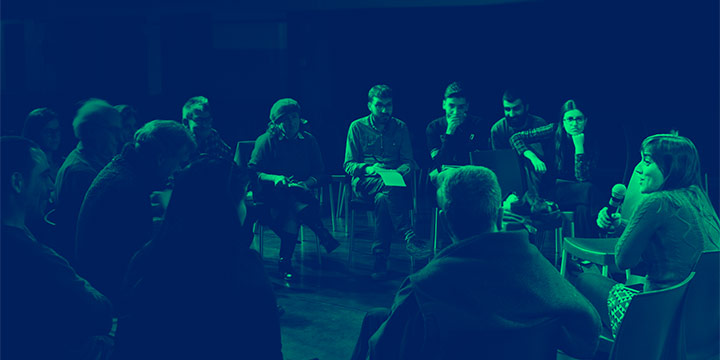
Public Procurement Lab at Medialab-Prado
From November 2017 up to March 2018, we coordinated the Medialab-Prado working group which brought together professionals from the public sector, specialists in national and international procurement, members of civil society, journalists and the general public to collectively define a more transparent model of public procurement (based on accountability to citizens, instead of only to tendering enterprises)and aiming at preventing corruption (integrating methods and technology for analysis, control, and monitoring to detect and prevent irregularities). All materials generated (group work, videos of speeches, debates and presentations) are in the public sphere, and are available here for any person or organization to freely access and use.
Our tools at your fingertips
We have continued to make free, publicly accessible tools available to all. In 2017:
-
2,500 individuals and organizations created more than 9,500 interactive visualizations of networks and nodes thanks to Onodo.org.
-
Around 20,000 people used ¿Dónde van mis impuestos? (Where do my taxes go? in English) to easily explore the general State Budgets.
-
Some 60,000 users accessed Quién Manda (Who’s is charge? in English) to browse the records of organizations, politicians and business owners to see how these are linked to one another.
-
The pardons search engine of the Pardonometer, a tool that is unique in Spain, has been used by 6200 people.
- More than 20,000 people used the search facility for public works on Quién cobra la obra (Who gets paid for the work? in English) and the records of construction groups and awarding authorities.
- 15,000 unique users access the Spain in flames app to interactively explore detailed information on major forest fires in Spain.
Daily attention
As per every year, we have addressed hundreds of inquiries and questions from private citizens on the exercise of their rights in connection to transparency, information that has been withheld from them, sources of information unknown to them, technical queries and questions on institutional administration.
With other organizations
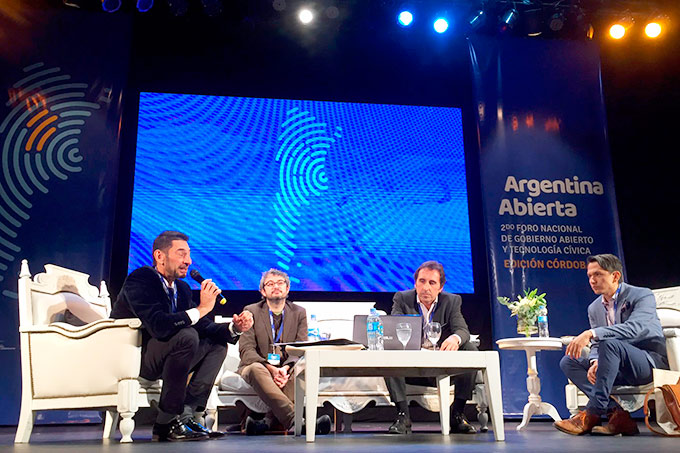
At #ArgentinaAbierta | Nati Carfi
We have been more active than ever in sharing our knowledge and expertise with other organizations. Thus, we have helped Greenpeace - Spain to better understand the transparency laws that affect their campaigns, and UNICEF - Spain to discover what budget lines are allocated to policies on childhood. We have shared our experience at meetings with organizations such as the European Anti-poverty Network (EAPN - Spain) and the Spanish Federation of Municipalities and Provinces (FEMP), as well as sharing strategies with dozens of supporters such as Hivos, Transparency International - Europe, the Open Government Partnership, Fraunhofer IAIS, the News Impact Academy of the European Journalism Center and the European Commission.
We have also delivered training on the Master of Research and Data Journalism by Unidad Editorial and the Master of Data Journalism at the University of Villanueva. And we have participated in international meetings such as Dataharvest, the Global Media Forum, EU Ideas Lab, CAPSSI or the International Book Fair of Guadalajara, in an ongoing, active search for partnerships.
Objective in the 2017 Action Plan:
Build capacity in civil society to better participate in public processes.
Team and governance
We have redoubled our efforts to apply the same standards of governance to ourselves. Thus, we have signed a code of ethics detailing the commitments that have governed our work since 2012, as well as some new ones, regulating how to act in relation to the disclosure of interests, financing, journalistic ethics, how we lobby and how we deal with potential conflicts of interest (for example, in the provision of technology services to public authorities).
In December 2017 the mandate of two of our trustees, Helen Darbishire and François Derbaix, who have accompanied us from our very beginnings, came to an end. As a result, we have refreshed our Board of Trustees with the addition of three new members: José Luis Marín (Euroalert), Marisol García (Hazloposible) and Olivier Schulbaum (Goteo). Both Helen and François will continue to support Civio as members of the foundation’s Advisory Board.
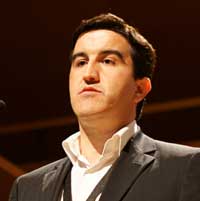
José Luis Marín (Euroalert)

Marisol García (Hazloposible)

Olivier Schulbaum (Goteo)
Our team of staff has grown with the addition of an online marketing specialist focusing on increasing our membership and managing day-to-day contact with them. This brings us to ta total of 10 full time staff members.
Accounts
For another year running, we have managed to be a sustainable organization, a fact we are very proud of. 2017 closed with profits of €15,345. Revenue grew to €404,895, an increase of 20% on the previous year, and 2.5% ahead of our 2017 Action Plan forecasts (at €395,200)
With higher income we have had higher expenditure, up to €389,549, slightly less than expected. The majority of this, some 82%, was spent on staff salaries. We have kept the staff salary scales in a range that varies from €21,000 at the lower end, to €28,000 at the higher end, to which a total variable remuneration of €15,000 was added for the entire team, based on end of year results. We also had an intern on a monthly salary of €700. The salary of the executive director stayed the same as 2016, at €39,500.
Revenues
Expenses
2017 revenue (€404,895) came from:
-
Civio’s partners and occasional donors (€36,115, 9% of the total)
The support of Civio’s partners, with their regular contributions, as well as that of others who donate occasionally or on a one-off basis, have proved more important than ever: these grew some 18% over the previous year, and we closed the year with 308 partners. However, this level of support is significantly lower that our start-of-year forecast, which aimed at 400 regular donors by the end of 2017. To garner further support, we have integrated a new team member, in charge of – for the first time as a full time post – creating and running campaigns to increase Civio’s membership with new donors.
-
Provision of professional services (€228,789, 56% of the total)
Revenue from technical support services for institutional transparency (relying on the Where do my taxes go? tool) increased by 80% over 2016, and form an important pillar for our sustainability. We have rolled out the tool in 4 autonomous communities and 13 municipalities, and initiated the launch of other projects to be presented in 2018. In addition to this is revenue from training, which amounted to €5,656. Revenue from this field was slightly higher than our forecast in the 2017 Action Plan (€216,000).
-
Institutional support and awards (€139,990, 35% of the total)
Revenue based on institutional support and grants came entirely from outside of Spain, as in previous years. Our participation in the European OpenBudgets project (€61,435), support from OSIFE (Open Society Initiative for Europe, €66,575), and the grant from the European Journalism Center to develop Medicamentalia (€11,980) provided the majority of this funding.
The range of funding sources grants us increased flexibility when it comes to dealing with the unexpected challenges, but we haven’t achieved one of our set objectives for 2017, one that is key to our future: that Civio’s donors and partners take a larger role in our financing, a move that would afford us stability and independence compared to other means – provision of services, participation in international projects, applying for grants – all far more unpredictable and requiring a large amount of resources and learning.
Since our launch, our annual accounts have been available to the public. You can browse them here.
Objective in the 2017 Action Plan:
New challenges, new supporters
Along the way, a traditional lack of organizations in Spain that monitor public authorities in an independent, thorough and nonpartisan way; the marked ideological polarization; and the frequency with which ‘alternative narratives’ - to be frank, lies – enter into public debate are just some of the obstacles that make the going slow.
In the face of this, many people spur us on every day to continue to foster transparency and accountability with more determination than ever. Their names would fill more pages than the content of this report. Our warmest thanks go to each and every one of them:
- First and foremost, the more than 350 people who donate to us every month, and the almost 1,200 who have made occasional contributions to our cause since we started out. Living up to the trust you place in us is our top priority.
- To everyone who has been involved in our projects in 2017. For example, in Medicamentalia, the most choral of them. And to so many others who have selflessly collaborated with us.
- To all of the authorities and professionals in the public sector who have listened to us to find the way to open their institutions to the public. And in particular, to Esther, whose legacy lives on and who we will never be able to thank enough.
- To the media who put trust in our projects and all those who re-publish our materials, reaching more people by the day.
- To the dozens of civil society organizations which, in Spain and other countries, share their formidable knowledge and expertise with us.
- To the more than 150 participants in the working group on transparency in procurement and in particular, to the 25 experts without whom it would have been impossible to learn so much.
- The 500 members, supporters, friends and readers who participated in our survey and suggested dozens of key areas to improve.
- And to the thousands of people who take an interest in and share our work. We strive to show, via discipline and credibility, that if you support us, it will be worth it.
Our greatest achievement has been to close 2017 with you by our sides, and the anticipation of keeping up the hard work in 2018, achieving an even greater impact with your support.
Thanks for your trust!
Jacobo, David, Eva, Raúl, Miguel Ángel, Amir, Sonia, Eduardo, Diego, María and Javier.
We need your donations to continue monitoring public authorities and put an end to opacity.
Helping us to keep our work INDEPENDENT is the only way we can carry on doing our duty.